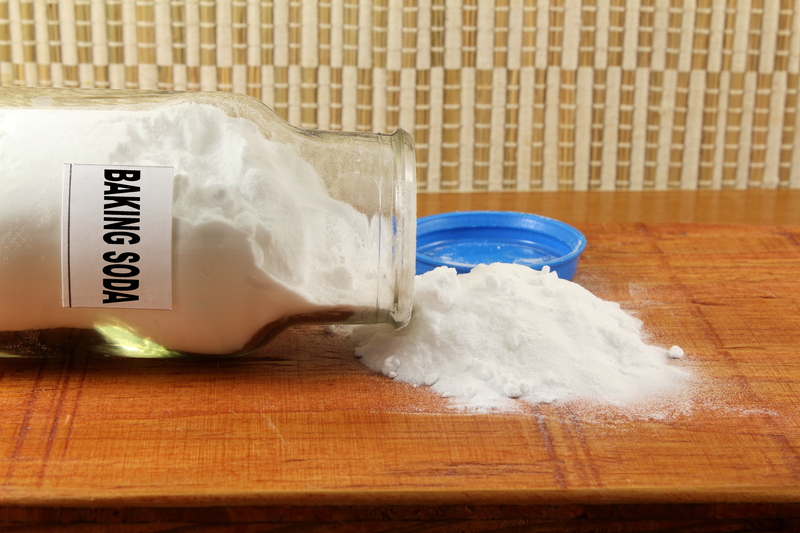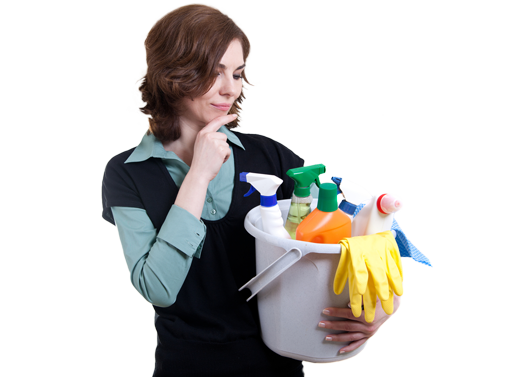Reclaim a Scent-Free Home by Eliminating Pet Odor
Posted on 16/06/2025
Reclaim a Scent-Free Home by Eliminating Pet Odor
Do you dream of a home that smells fresh and welcoming, even with pets around? Enjoying the companionship of pets shouldn't mean compromising on a clean and scent-free environment. However, no matter how much we love our furry friends, pet odors can become persistent and challenging to eradicate. In this comprehensive guide, you'll discover expert strategies, product recommendations, and useful tips to eliminate pet odor, helping you reclaim a scent-free home for good.
Understanding the Causes of Pet Odor
Before tackling pet odors, it's important to understand where they're coming from. There are several sources of unpleasant smells related to pets, and identifying them will help you decide the best course of action for eliminating pet odors effectively.
Common Sources of Pet Odors
- Accidents -- Urine, feces, and vomit accidents are the most apparent sources of pet-related odors, especially on carpets and upholstery.
- Pet Dander and Fur -- Shed fur and dander can settle into fibers and create a musty smell that permeates your home.
- Unwashed Bedding, Toys, and Accessories -- Beds, blankets, toys, and leashes can harbor lingering scents over time.
- Glands and Natural Oils -- Some pets, especially dogs, produce natural body oils that can stick to surfaces and fabrics.
- Breath and Saliva -- Your pet's mouth can be the source of odors, transferred to toys, furniture, and even your hands.

The Importance of Eliminating Pet Odor
Masking pet odor is a temporary solution; eliminating pet odor at the source is essential for maintaining indoor air quality and keeping your home comfortable. Persistent pet odors can have negative consequences, including:
- Embarrassment when hosting guests
- Increased risk of respiratory problems and allergies
- Potential damage to carpets, furniture, and flooring
- Difficulty selling or renting your property in the future
Proactively removing pet odors isn't just about comfort--it's crucial for your home's value and your family's health.
Step-by-Step Guide: How to Remove Pet Odor and Reclaim a Scent-Free Home
Ready to reclaim your home from pet odors? The following comprehensive steps are your roadmap to success:
Step 1: Identify Problem Areas
Conduct a "sniff test" and visual inspection in each room. For subtle odors, use a black light to spot urine stains on carpets, walls, and furniture. Pay special attention to:
- Corners and edges of rooms
- Underneath rugs and furniture
- Your pet's favorite resting spots
- Closets and rarely used rooms
Step 2: Clean Accidents Thoroughly
Act quickly to remove fresh accidents, as prompt cleaning prevents odors from seeping in. For old or dried incidents, a thorough cleaning is a must. Use these techniques:
- Blot up liquids with paper towels or an absorbent cloth--never rub, as this can spread the mess.
- Apply a pet-specific enzymatic cleaner to break down urine proteins and neutralize odors.
- If cleaning carpet, use a wet vacuum or carpet extractor for deep cleaning.
- For hardwood or tile, clean with a mild pet-safe solution. Do not use ammonia, which can mimic urine's scent and encourage re-marking.
Step 3: Wash Pet Bedding, Blankets, and Soft Furnishings
Your pet's belongings are magnets for odors. Be diligent about regularly washing:
- Beds and blankets
- Toys and stuffed animals
- Slipcovers and removable cushions
- Leashes, collars, and harnesses
Use hot water and a mild, unscented detergent. Add a cup of white vinegar for extra odor-busting power, and ensure everything is completely dry before returning items to your pet.
Step 4: Remove Pet Hair and Dander
Vacuuming is your best friend when combating pet odors. Pet hair and dander collect in carpets, on furniture, and even along baseboards. To minimize the scent:
- Vacuum all surfaces at least twice a week using a high-efficiency particulate air (HEPA) filter vacuum designed for pet hair.
- Use lint rollers or damp rubber gloves for quick daily cleanup of sofas and beds.
- Clean or replace air filters in your HVAC system, as these trap airborne pet dander and odor particles.
Step 5: Treat Surfaces with Odor Eliminators
Many surfaces hold onto pet odors even after physical cleaning. Use these solutions for lingering smells:
- Enzymatic sprays for fabrics and upholstery--these break down the odor-causing molecules at the source.
- Baking soda for carpets and rugs--sprinkle, let sit for at least 30 minutes, then vacuum up.
- Activated charcoal or odor-absorbing gels placed around your home to passively absorb scents from the air.
- A mixture of vinegar and water for wiping down hard surfaces like floors and baseboards.
Step 6: Address the Air Itself
Sometimes, no matter how thoroughly you clean, a faint "pet smell" lingers in the air. Indoor air quality is vital for maintaining a scent-free home:
- Open windows regularly for ventilation.
- Run HEPA air purifiers in main living areas and bedrooms.
- Use natural odor absorbers (such as potted plants, charcoal bags, or bowls of baking soda) in problem areas.
- Avoid using strong perfumes or sprays, which may only mask odors, not eliminate them.
Preventative Measures to Keep Your Home Odor-Free
Once you've successfully eliminated pet odor from your home, take steps to keep it that way! Prevention is the most effective tool in maintaining a fresh indoor environment.
Regular Pet Grooming
Clean pets contribute to a scent-free home. Depending on your pet's breed and needs:
- Bathe pets regularly using gentle, pH-balanced shampoos.
- Brush your pet daily to reduce shedding and dander buildup.
- Clean your pet's paws after outdoor walks to prevent muddy or musty scents indoors.
- Address dental hygiene to prevent bad breath and saliva odors.
Manage Litter Boxes and Potty Areas
- Scoop litter boxes daily and disinfect them weekly.
- Use high-quality, clumping, unscented litter that traps odors naturally.
- For dogs, promptly clean up after them in the yard and periodically wash any pee pads or turf.
- Place an odor-absorbing pouch or baking soda container near problem areas for added freshness.
Routine Home Maintenance
- Steam clean carpets, rugs, and upholstery every 3-6 months.
- Wipe down hard floors and baseboards regularly.
- Deep clean drapes and wash window treatments at least twice a year.
- Change air filters monthly or as recommended by your HVAC manufacturer.
Household Habits Matter
Your daily habits play a major role in whether pet odors linger or disappear:
- Feed pets high-quality food to minimize digestive issues and strong waste odors.
- Crate- or potty-train puppies or kittens to avoid accidents.
- Treat underlying medical issues (urinary tract infections or gastrointestinal troubles) with your vet's advice.
Choosing the Best Products for Eliminating Pet Odor
The right cleaning and odor-eliminating products can make a noticeable difference. Here's what to look for:
- Enzymatic Cleaners -- Designed specifically for pet urine and organic stains, these cleaners break down the proteins that cause lingering smells.
- Baking Soda -- A natural deodorizer safe for most surfaces and excellent in carpets and beds.
- Activated Charcoal -- Absorbs airborne odors effectively when placed around the home.
- Pet-Safe Air Purifiers -- Units equipped with HEPA and activated carbon filters are most effective at removing pet odor from the air.
- Odor Absorbing Gels -- These gels trap and neutralize pet odors in rooms where your pets spend the most time.
Ensure any product used is clearly labeled as pet-safe to avoid harmful reactions.
Myths and Mistakes About Pet Odor Removal
Many well-meaning pet owners make mistakes that can worsen the problem or simply mask odors. Avoid these myths:
- Myth: Air fresheners solve the problem. Reality: They can create a "perfume-over-funk" effect but do not eliminate the source of the odor.
- Myth: Bleach is the best cleaner for pet messes. Reality: Bleach does not break down the proteins in urine or feces and may actually set stains.
- Myth: Visible cleanliness means there's no odor problem. Reality: Even invisible urine spots can emit strong odors, especially in warm or humid conditions.

When to Call in the Professionals
Sometimes, despite your best efforts, pet odors refuse to leave. A professional cleaning service may be necessary for:
- Severe or longstanding urine damage to carpet padding or subfloor
- Lingering smell in HVAC ducts
- Hidden or inaccessible odor sources, like inside walls or under floorboards
- Preparing for home sale or rental where first impressions matter most
Conclusion: Enjoy a Fresh, Scent-Free Home with Pets
Having pets and keeping a scent-free home are not mutually exclusive! With the right cleaning strategies, products, and habits, you can eliminate pet odors and enjoy both fresh indoor air and the company of your beloved animals.
Consistency is the key! Make cleaning routines part of your weekly schedule, focus on prevention, and don't be afraid to try new products or call in a pro for stubborn cases. By staying proactive, you'll reclaim your home from pet odors--making it welcoming, healthy, and comfortable for all.
Say farewell to pet odor and hello to a truly scent-free, happy home!
```




